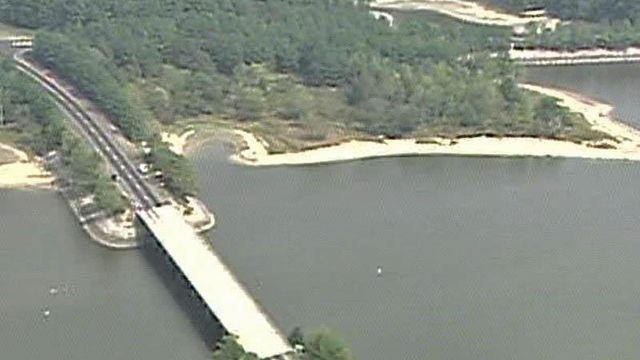Conservation, Planning Needed to Meet Future Water Demands
As cities across the state place limits on water consumption to deal with a widening dought, state and local officials also are keeping an eye on water supplies to ensure they can keep up with growing demand.
Posted — UpdatedEvery community water system in North Carolina must submit detailed plans to the state showing how they will meet demand for decades to come.
According to the state Division of Water Resources, Moore County, Roxboro and Stovall are considered drought-vulnerable. Also, Johnston and Harnett counties, Smithfield, Pittsboro, Fayetteville, Fort Bragg, Louisburg, Dunn, Sanford, Carthage, Southern Pines and Zebulon are on the watch list for river intake systems.
Don Rayno, a planner with the Division of Water Resources, said the state will increase scrutiny of water system usage in the coming years, including monitoring smaller subdivisions that run on well water.
But he said Wake County communities have planned well to meet future demand by banding together to treat and distribute water. Also, the Triangle is blessed with large bodies of water, such as Falls Lake and Lake Jordan.
"The area in these reservoirs provides a phenomenal amount of storage," Rayno said. "I'd say the Triangle is in a pretty good position in terms of planning for its current demand and future demand."
But growth will continue to be a challenge.
Developers rely on local governments to determine if adequate water resources exist to handle new subdivisions, said Lisa Martin, director of regulatory affairs for the North Carolina Home Builders Association.
"We do support municipalities that have started to charge small monthly fees for the future expansion and capacity needs they're going to have," Martin said.
With conservation, planning and cooperation with developers, Rayno said central North Carolina should have enough water to meet demand for years to come.
"We're going to have to do a better job of using the amount of water we have available to us," he said. "(If) you manage it better, the supply you have will last you longer."
• Credits
Copyright 2024 by Capitol Broadcasting Company. All rights reserved. This material may not be published, broadcast, rewritten or redistributed.





